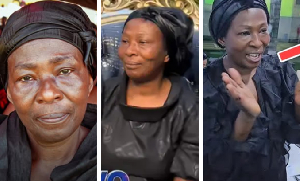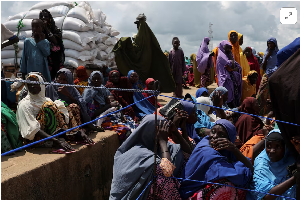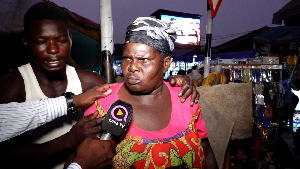By Kwame Okoampa-Ahoofe, Jr., Ph.D.
For the most part, I have carefully steered clear of the raging debate on the relevance or, for that matter, otioseness of the traditional Ghanaian institution of the monarchy. The disdain of Western-European colonizers for their African subjects – or more aptly, captives – precipitated the linguistic degradation of this primal and civilized institution into one that these imperialists deemed to be ersatz or inauthentic, thus the routine use of the term “Chieftaincy” rather than “Monarchy.” In Europe itself, chieftains are called Kings, Queens or Monarchs. About the only place in Africa where the coordinate designation of Monarch is globally recognized is the southern African nation of Swaziland. Ironically, though, the monarchical regime of the Swazi in both twenty-first century African and global culture is not one that inspires much confidence. His persistent subscription to polygyny (or polygamy) of the most primitive tenor continues to raise eyebrows as well as make occasional headlines and inexcusably embarrass both denizens of continental Africa and Swaziland itself.
The irony, though, is that the Dhlaminis or the Swazi Royal Family easily ranks among the most modern and best educated of its ilk in Africa and elsewhere. I know the foregoing for a fact because between 1994 and 1995, I had the privilege of teaching African History to one of the Swazi princes at the Indiana State University, Terre Haute. I was in the process of composing my doctoral dissertation and a Visiting Lecturer to that fine and middle-level, Mid-Western, research and teaching university.
Most of the male members of the Swazi Royal Family are educated abroad, mainly in Britain and the United States. While at Indiana State, I also learned from the extant director of the campus-based Terre Haute Cultural Center, Mr. Charles Brown (a.k.a. Charlie Brown) that several members of the Swazi Royal Family had preceded this particular prince who was my student. And they had not departed Indiana State, or ISU, without leaving something behind by which to be remembered, invariably in the form of a ritual mask or a piece of cotton print or other traditional African artifacts. I even recall jocularly suggesting that the Cultural Center be renamed after the Swazi Royal Family.
In any case, I have carefully steered clear of the ongoing debate on Ghanaian Chieftaincy largely because the debate has been invariably dominated by people who know little or absolutely nothing about the integral institution of the Monarchy. Naturally, therefore, the debate, which is actually no debate at all but insufferably intemperate and vituperative tirades against this august institution by people best kept in cages as classical specimens for the study of unregenerate humanity in a civilized society, has largely consisted of a few prominent and individual monarchs being scapegoated for problems that were largely created by Western imperialism and its woefully misguided and presumptuous African counterpart-successor of neocolonialism.
In Ghana, the latter corrosive and insidious element was best represented by Mr. Kwame Nkrumah, whose crippling Eurocentric temperament ensured that the august institution of the Monarchy would be systematically undermined and ultimately proscribed. Exactly how a personality of President Nkrumah’s caliber and global stature could arrive at such embarrassing level of clinical self-alienation continues to baffle many an Africanist and African scholar of remarkable distinction. In brief, rather than undertake a rational and systematic study of the institution of the Ghanaian Monarchy, and thus be able to fully appreciate its primal place and relevance for the articulation of his pseudo-theory of the “African Personality,” the first Prime Minister – and later Life-President – of Independent Ghana cavalierly presumed the Ghanaian Monarchy to be an ossified feudal relic that needed to be promptly excised from a modern and progressive Africa. Ironically, as well as paradoxically, Nkrumah would facilely presume to singularly embody, within himself, as an “Osagyefo,” the quintessence and relevance of the very institution whose extirpation he appeared woefully and pathetically to be incapable of effectuating expeditiously enough.
Of course, Nkrumah’s much-touted concept of the “African Personality” was a veritable ersatz, a palpable pseudo-theory that has absolutely no bearing, whatsoever, on collective African existence, because it curiously negated the very cultural matrix and ethos which made the African the unique personality that the African Show Boy so deafeningly and proudly proclaimed. On the latter score alone, Nkrumah could be aptly described as, perhaps, the most addled, or psychologically troubled, major continental African leader of the twentieth century. And it is also the latter state of affairs which makes Dr. J. B. Danquah, together with the latter’s scholastic predecessor, Dr. J. E. K. Aggrey, both the Greatest Ghanaian and the Greatest African of the twentieth century. For by and large, great people are great because they are sensitive enough to promptly recognize the essential value and worth of their cultures; great people are also intelligent enough to recognize the essential good both in themselves and the very cultures that shaped their identities and inextricably define their value and significance within the cosmic order of Nature.
Drs. Aggrey and Danquah, on the other hand, spent much of their time studying the proverbial African Personality and pragmatically and progressively devising meaningful ways of making an increasingly global, communal cultural organicity relevant and negotiable for the callously imperialized, traumatized and deliberately retarded and abjectly inferiorized African personality. Other distinguished Ghanaians who have laudably pursued the progressive and irredentist path pioneered by Drs. Aggrey and Danquah are Drs. K. A. Busia and A. A. Y. Kyerematen and, before the preceding, Messrs. John Mensah-Sarbah and Kobina Sakyi.
What inspired the composition of this mini-essay, however, was the recent call by Ghana’s Minister of Defense, Mr. Albert Kan (Ken?) Dapaah, for a constructive discussion of the role of Chieftaincy in national governance (see “Minister Calls for Re-thinking of the Role of Chiefs in Politics” Ghanaweb.com 10/20/08). Mr. Dapaah made his call during the celebration of the annual Odwira (or Stool-house Cleansing) festival by the Chief and people of Begoro township in the Benkum, or Left-Wing, division of the Akyem-Abuakwa Traditional Area. Mr. Dapaah reportedly told the Begorohene, Osabarima Awuah Kotoko, that it was time for “all cultural practices to be made relevant to the times and those considered outmoded [promptly] discarded or revised [in order] to avoid handing over dangerous weapons to people who do not care about culture [and, in effect, Ghana’s unique contribution to global civilization] to continue to attack the relevance and importance of culture.”
Indeed, in view of its increasingly endangered status, it would absolutely not be out of order, at all, to suggest the subsumption of the integral and incontrovertibly organic institution of Ghana’s Monarchy under the Ministry of Defense. For, it goes without saying that a people bereft, or devoid, of a viable and venerable culture are by this very fact a living-dead people!
*Kwame Okoampa-Ahoofe, Jr., Ph.D., is Associate Professor of English, Journalism and Creative Writing at Nassau Community College of the State University of New York, Garden City. He is the author of 18 books, including “Ghanaian Politics Today” (Atumpan Publications/lulu.com, 2008) and “Dr. J. B. Danquah: Architect of Modern Ghana” (iUniverse.com, 2005). E-mail: okoampaahoofe@aol.com.














